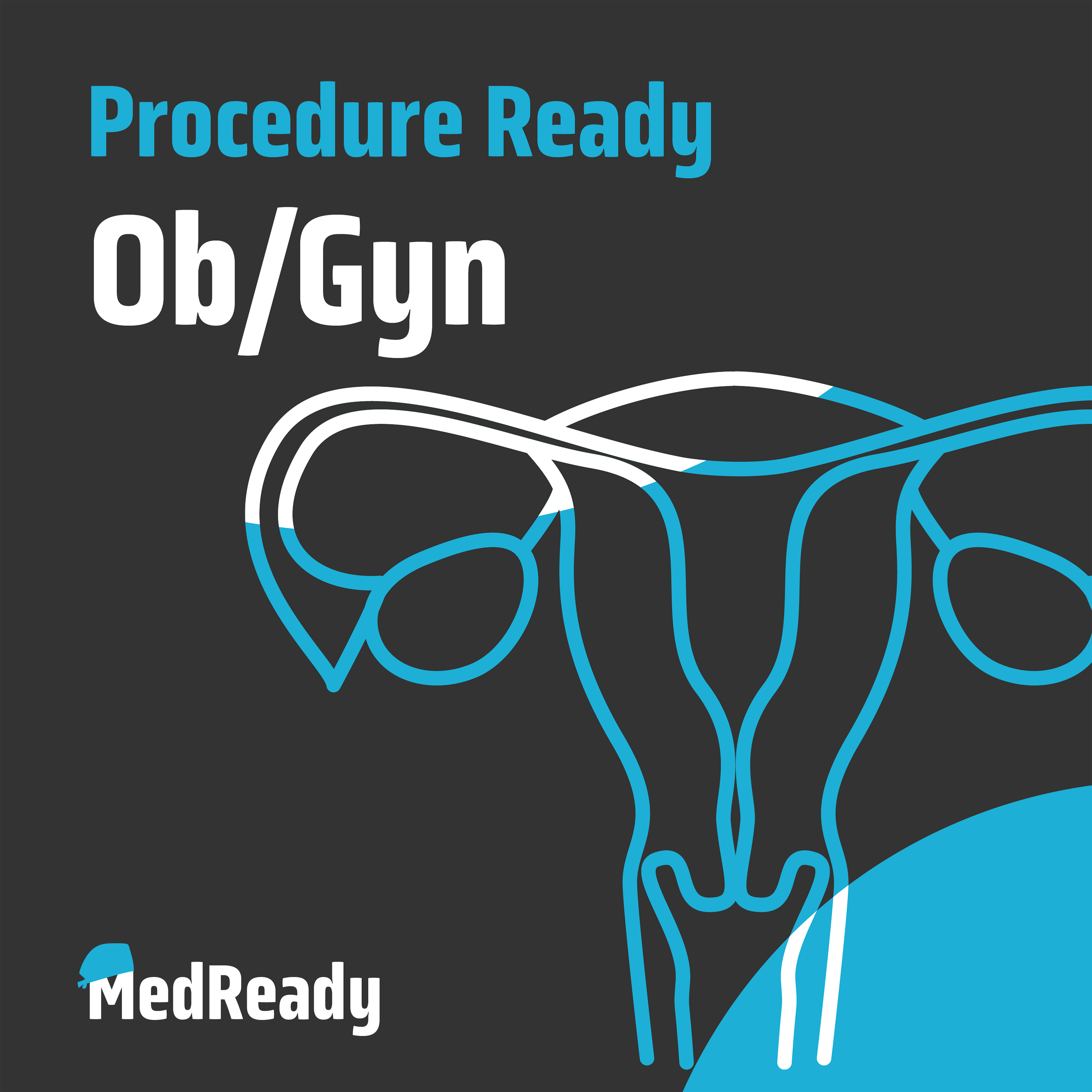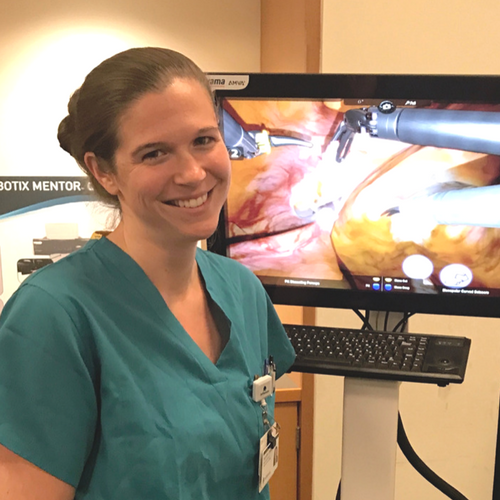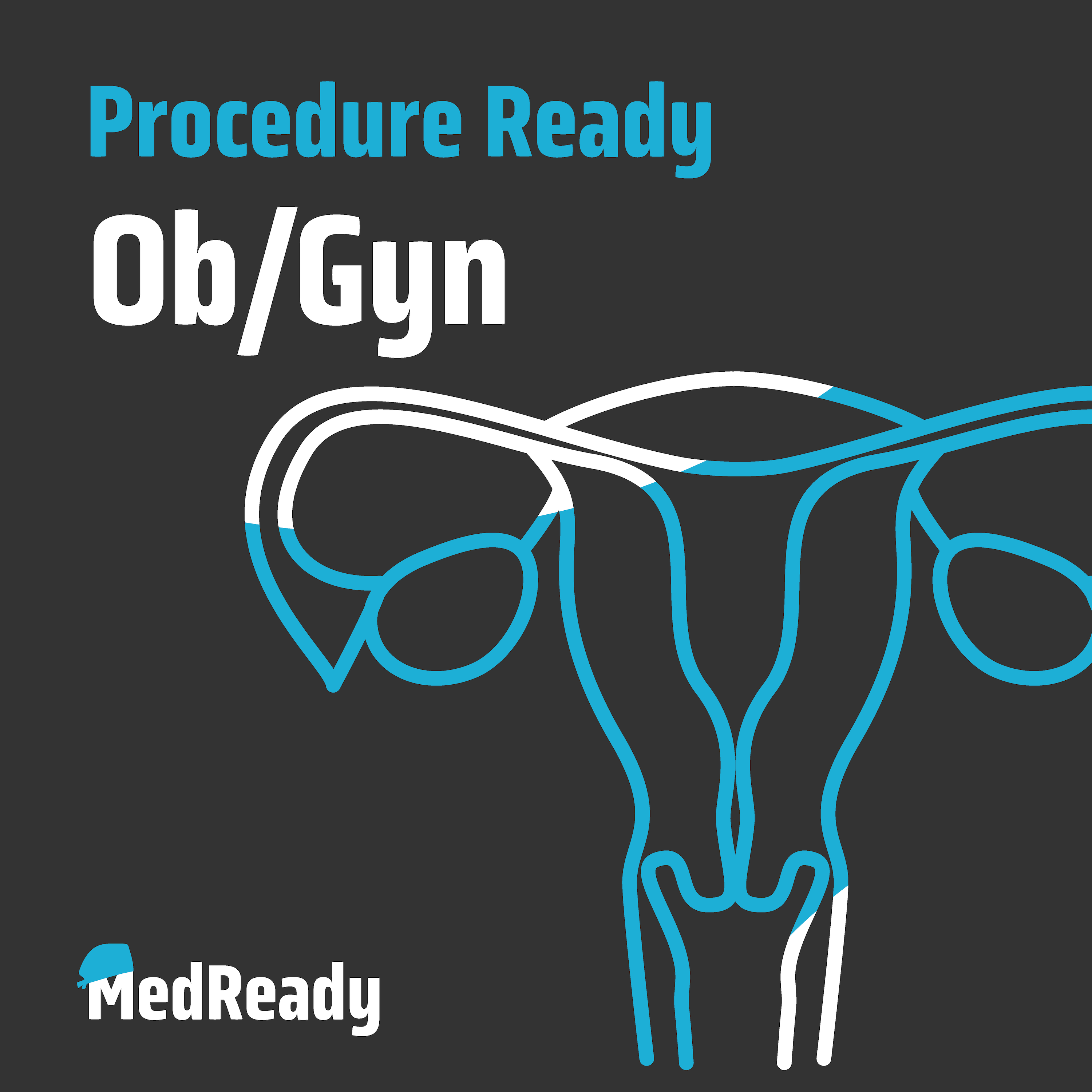Show Notes
Review anatomy– you’ll be able to see well!
Pimped- Youtube Channel videos for laparoscopic anatomy
What case are you doing and why?
Review common indications, steps to procedure and potential risks/complications
Saying hi to the patient first
Being helpful setting up — yellowfins or stirrups for lithotomy
Scrubbing in — ask to grab your gown/gloves for the scrub, open carefully or get help if unsure
Abx: If entering uterus or vagina ie hyst
Prep: infection prevention with chloraprep or something
EtOH based, needs to evaporate before draping or risk fire!
Vaginal prep — betadine or chlorhexidine
Then everyone scrubs
Let resident/attending drape unless asked.
You may be asked to help with foley/manipulator
Uterine manipulators: Many sizes/shapes/types
Vagina is dirty– can’t go from vagina to abdomen
Abdomen:
Entry: Typically in umbilicus or just above. Can use Palmer’s Point if needed.
Direct visualization with Hassan
Visiport
Veres needle
Insufflate with CO2
Port placement: Typically middle ⅓ of distance between ASIS and umbilicus. Avoid obvious superficial vessels and inferior epigastric –watch from below
Common procedures:
- Dx LSC– endometriosis, adhesions
- Tubal ligation or bilateral salpingectomy
- Cystectomy
- BSO
- Hysterectomy
Closing ports: Close fascia on ports >5mm due to increased risk of hernia
Post-op checks: Many LSC cases are same-day, meaning patients go home
-Nausea/vomiting, eating/drinking, voiding, passing flatus, ambulating
-UOP, BPs,




